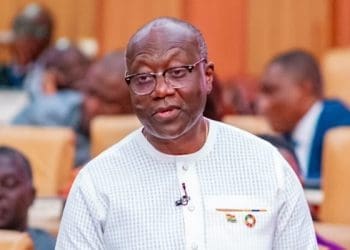Reverend Richard Whitcom, Senior Pastor of Agape House New Testament Church, and a respected voice in the Christian community, has asserted that Ghana’s problem is not the people in Jubilee House, but the people in the house of God.
Delivering a sermon on Saturday, June 21, 2025, has sparked widespread introspection and conversation about the role of the church in Ghana’s development.
Reverend Whitcom argued that while political leaders in Jubilee House—Ghana’s seat of government—often take the brunt of criticism for the country’s socio-economic challenges, it is the silence, complacency, and sometimes complicity of the religious community that sustains the nation’s problems.
He said “The change we need in Ghana will not take place with a change in government. The change we need will take place with a change in us. The problem is not the people in Jubilee House, it’s the people in God’s house.”
“Please hear me out. I’m not NDC or NPP. I’m not CPP or any other PP. I’m priestly, not political. I’m not into man’s rule, I’m into God’s rule,” he added.
The clergyman pointed to what he called a spiritual compromise among many churches, accusing some of focusing on wealth, miracles, and celebrity-style worship at the expense of righteousness, justice, and moral discipline.
He criticised the growing commercialisation of religion and the rise of pastors who manipulate scripture for personal gain.
Rev. Whitcom stressed that the church holds significant influence in shaping the moral fiber of the nation.
According to him, if the Christian community collectively decided to uphold integrity, promote social justice, and stand against corruption, Ghana’s leadership and governance culture would begin to transform from the grassroots up.
“Don’t cry about corruption in government when you run your business corruptly. Don’t bemoan bribery in society when you pay and accept bribes in your business,” he noted.
He called on fellow clergy to return to biblical principles, prioritising truth over popularity and service over showmanship.
He also urged congregants to live out their faith in their workplaces, homes, and communities with the same fervour they exhibit during worship.











